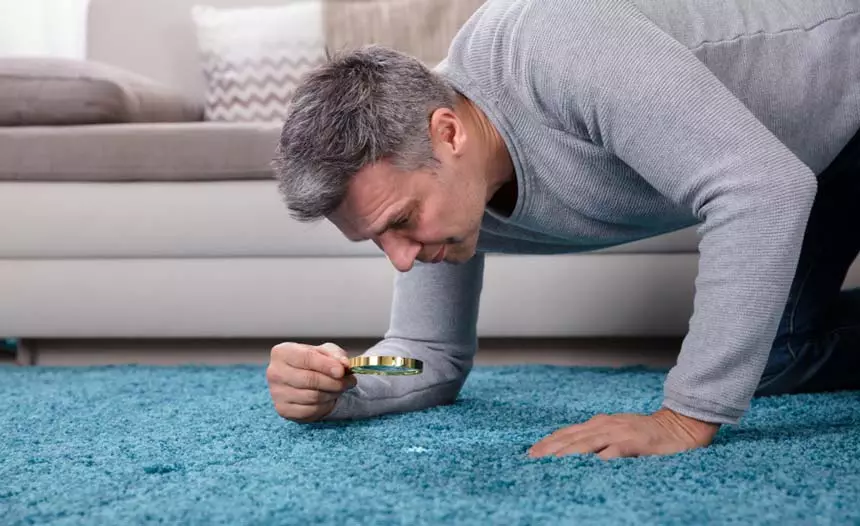Programs for Treating Obsessive Compulsive Disorder
Obsessive Compulsive Disorder (OCD) is a common mental health condition that affects millions of people globally. It is characterized by persistent intrusive and unwanted thoughts/obsessions, and repetitive behavior. While these thoughts and behaviors can seem harmless in the beginning, they can escalate to a point where they become debilitating and have a severe impact on daily life.
Living with OCD can feel like an endless cycle of doubt and fear but there is hope for those who are affected by this condition. With the right plan tailored to your needs and circumstances, it is possible to live more comfortably with the symptoms of obsessive-compulsive disorder and ultimately lead a fulfilling life despite its presence.
Keep reading to learn more about OCD, treatment programs, and how Catalina Behavioral Health can help!
Get Immediate Placement for Mental Health Treatment!
What is Obsessive Compulsive Disorder?
OCD affects millions of people around the world. It is characterized by intrusive and recurring thoughts, called obsessions, and repetitive behaviors, called compulsions. At its core, OCD is one of the disorders that involve a cycle of excessive worries and repetitive behaviors that can consume an individual’s life. It is one of the many types of anxiety disorders.
OCD is not a simple case of being tidy, organized, or a perfectionist, although it may appear so on the surface. The compulsions that individuals with OCD engage in are driven by intense anxiety and fear and are not done for pleasure or enjoyment. They may spend hours every day performing rituals in an attempt to ease their worries and anxieties.
The obsessions that drive the compulsions in OCD can be diverse and vary greatly from person to person. These thoughts can be distressing, and embarrassing, and may feel impossible to control. They often cause significant distress and interfere with daily life.
When faced with these thoughts, individuals respond with anxiety through compulsions like excessive hand-washing, counting rituals, repetition of certain phrases to oneself, ordering items in a specific way over and over again, or checking behaviors such as repeatedly checking locks or stove burners.
It is important to note that OCD is an anxiety disorder and a mental illness, not a choice, and is not something that individuals can simply “snap out of.” It is an actual medical condition that requires professional treatment and support.
What are the Symptoms of OCD?

Understanding the symptoms of OCD can help in seeking the right treatment and support. Here is a list of some of the most common symptoms and side effects of OCD:
Obsessive Thoughts
These are persistent, intrusive, and often distressing thoughts that can cause significant anxiety. They can be about anything and can vary greatly from person to person. For example, some individuals may experience obsessive thoughts about contamination, while others may worry about harm coming to themselves or their families.
Compulsive Behavior
Compulsions are repetitive behaviors that are performed in response to obsessive thoughts. They are not done for pleasure or enjoyment, but rather to alleviate anxiety and fear. Examples of compulsive behaviors include checking locks repeatedly, washing hands excessively, counting objects, or arranging and rearranging items in a specific order. These behaviors provide temporary relief but don’t help in the long run.
Intense Anxiety

OCD can cause intense anxiety and fear, which can be distressing and interfere with daily life. This anxiety may worsen if the individual is unable to perform their compulsions or if they resist their obsessions. Although OCD can lead to the need for anxiety treatment options, the underlying cause is related to the compulsive disorder.
Avoidance
Individuals with OCD may start to avoid situations or objects that trigger their obsessions and compulsions, as a way to reduce their anxiety. For example, they may avoid shaking hands with others or avoid entering certain rooms in their home.
Disruption to daily life
OCD can have a significant impact on daily life and may cause difficulty in maintaining relationships, holding down a job, and enjoying leisure activities.
Treatment For Obsessive Compulsive Disorder

Obsessive Compulsive Disorder (OCD) is a complex mental health condition that can cause significant distress and interfere with daily life. Fortunately, there are several treatment options available for individuals with OCD. Some of the most effective treatment options include the following:
Inpatient Treatment Programs
Residential or inpatient mental health treatment is typically reserved for individuals with severe symptoms of OCD who require 24-hour care and support. This type of treatment usually involves staying in a hospital or a residential facility, where individuals receive round-the-clock care and support.
A residential OCD and anxiety treatment center can be especially beneficial for individuals in crisis or who have not responded to other forms of treatment.
24 Hour Mental Health Treatment Helpline
Intensive Outpatient Treatment Center
Intensive outpatient treatment or IOP programs offer a structured day program for individuals with obsessive-compulsive disorder. This type of treatment typically involves several hours of OCD therapy each day.
Intensive outpatient treatment can be a good option for individuals who need more support and structure than traditional outpatient therapy, but who are not able to commit to inpatient treatment.
Individual OCD Therapy

Individual therapy, such as Cognitive Behavioral Therapy (CBT), is a popular and effective treatment option for individuals with obsessive-compulsive disorder. CBT involves working with a therapist to identify and change negative thought patterns and behaviors associated with OCD. During individual counseling sessions, individuals with OCD can learn new coping skills and strategies to manage their symptoms.
ERP Therapy
Exposure and Response Prevention (ERP) therapy is a type of CBT that is specifically designed for individuals with OCD. ERP involves gradually exposing individuals to their obsessive thoughts and triggers and then teaching them to resist the urge to perform compulsive behaviors. This type of exposure therapy can help individuals overcome their fears and anxiety, and can lead to long-term improvement in OCD symptoms and repetitive behavior.
Medication For OCD and Anxiety Disorders
Medication may also be prescribed as part of an overall treatment plan for OCD if necessary. Selective serotonin reuptake inhibitors (SSRIs) are the most commonly prescribed medications for this condition, as they have been found to reduce symptoms significantly when taken regularly over time.
Choosing The Right OCD Treatment Centers – Arizona

The right OCD and anxiety treatment center can provide the support and resources needed to manage symptoms and live a fulfilling life. However, with so many options available, choosing the right treatment center can be overwhelming. Here are some key factors to consider when selecting the right OCD and anxiety treatment center.
Expertise and Specialization
It is important to choose a treatment center that specializes in treating OCD, such as Catalina Behavioral Health. Look for centers that have a team of experts with specialized training and experience in treating OCD, including therapists, psychiatrists, and other mental health professionals.
Evidence-Based Treatment
Evidence-based treatments are treatment methods that have been proven to be effective through scientific research. When choosing a treatment center, look for one that offers evidence-based treatments, such as Cognitive Behavioral Therapy (CBT) and Exposure and Response Prevention (ERP) therapy.
Personalized Care
Each individual with OCD is unique, and their treatment should reflect that. Look for a treatment center that offers personalized care tailored to the individual needs and goals of each patient. This includes an individualized treatment plan, as well as the opportunity for patients to work one-on-one with a therapist or psychiatrist.
Mental Health Services

Exceptional mental health treatment services are essential for individuals with OCD. Look for a treatment center that offers comprehensive mental health options, including a combination of individual counseling, group therapy, medication management, and support services.
Location and Amenities
Consider the location and amenities of the treatment center when choosing the right one for you. Look for a center that is easily accessible and that offers a comfortable and welcoming environment. Also, consider the availability of recreational activities and amenities, such as a gym or yoga studio, which can enhance the overall treatment experience.
With the right treatment center, individuals with OCD can manage their symptoms, improve their quality of life, and lead happier and healthier lives.
Licensed Mental Health Treatment Programs
Get Help with OCD and Other Compulsive Disorders
If you or someone you love is struggling with obsessive-compulsive disorder (OCD) or any other mental health disorder, contact Catalina Behavioral Health today. Our experienced and compassionate team of mental health professionals provides comprehensive treatment for those suffering from OCD and any other chronic disorder, such as depression, anxiety, and bipolar disorder.
Our specialized OCD program includes individual therapy sessions with our staff members that consist of licensed and certified therapists, group therapy sessions with peers who understand what you are going through, medication management services to help manage symptoms, and support services such as family counseling and lifestyle coaching.
Find a Whole Person Approach to Healing at Catalina

We believe in treating the whole person – not just their symptoms – and our personalized approach allows us to tailor treatment plans to meet each individual’s unique needs. We focus on providing evidence-based treatments.
OCD affects people from all walks of life. If you or someone you love is struggling with OCD, OC spectrum disorders, or any other mental health disorder and are looking for recovery and a new beginning, contact Catalina Behavioral Health today for compassionate and effective care.
All calls are completely confidential, so please reach out now in confidence and get options for your recovery today!




